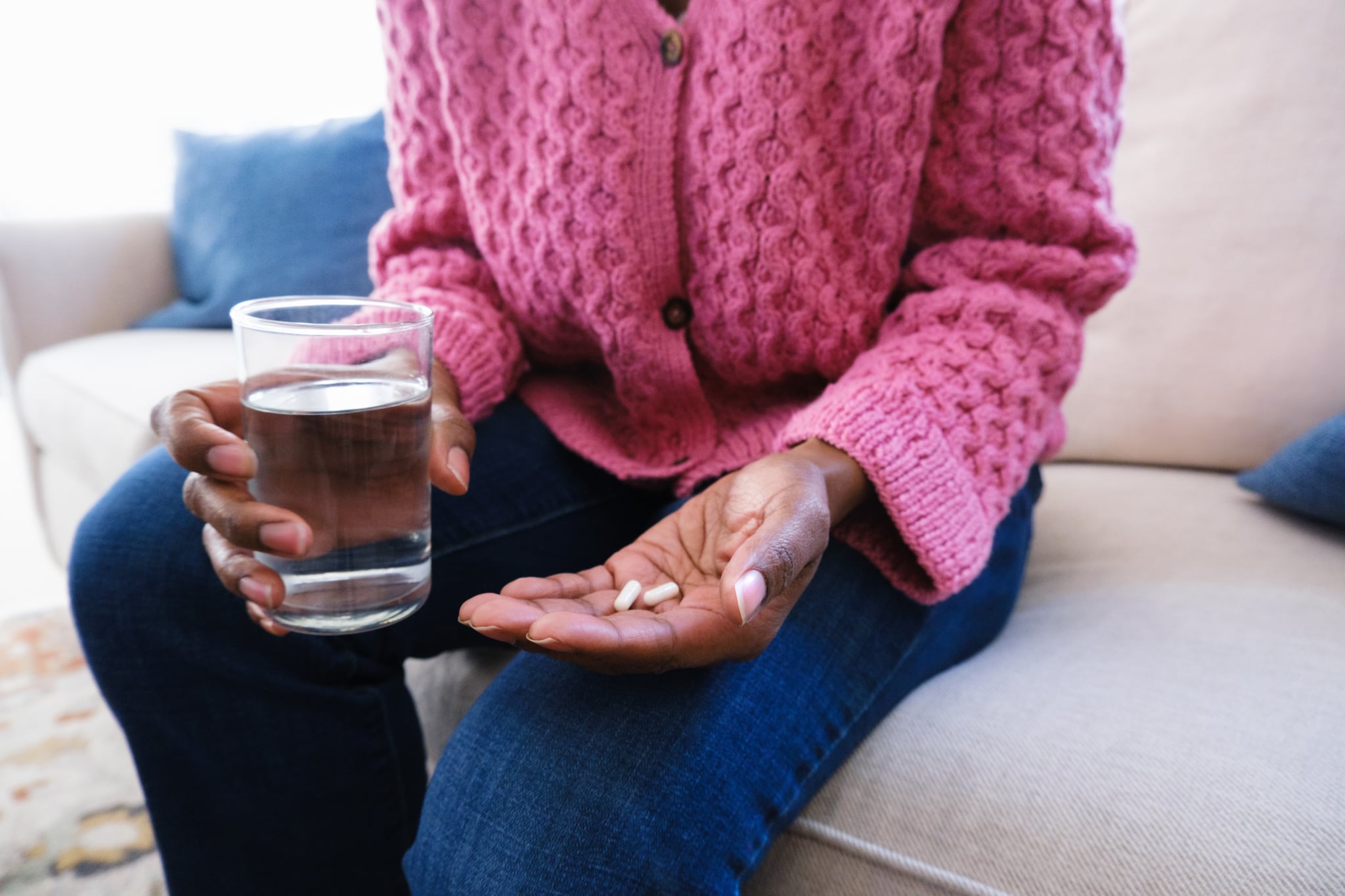Products You May Like
Probiotics — nicknamed “good” or “helpful” bacteria by health professionals — are live bacteria and yeasts that help keep your gut healthy and improve digestion. However, when you start upping your probiotic intake (either through supplements or eating probiotic-rich foods, like yogurt), it’s not always easy to spot the signs that probiotics are working. “There are no magic telltale signs that probiotics are working, but you may see an improvement in abdominal pain, bloating, inflammation, and weight,” Kumkum Sarkar Patel, MD, MPH, a board-certified gastroenterologist in California, tells POPSUGAR. If taken as intended, probiotics can restore and improve your gut environment, or “flora,” and overall health in several ways. If you feel the following improvements after taking probiotics, it’s likely that they’re working properly.
Signs Probiotics Are Working
When it comes to probiotics, the benefits are plenty. Ahead, experts weigh in on positive probiotics side effects and signs that your probiotics are actually working.
1. Decreased Abdominal Pain and Discomfort
While it might seem like general knowledge, it turns out that a decrease in overall gastrointestinal symptoms is one of the easiest ways to tell if your probiotic is working. “Decreasing the stretch imposed on the small bowel and colon, [which] is typically caused by ‘bad’ bacteria, can lead to decreased pain and discomfort in the abdominal region,” Julia Hughes, MD, a gastroenterologist in North Carolina, tells POPSUGAR.
2. Reduced Bloating and Gas
Similar to how probiotics can help eliminate gastrointestinal symptoms through a more diverse gut flora, they can also reduce fermentation and bloat caused by an unhealthy balance of gut bacteria. “When the ‘good’ bacteria predominate, they can reduce the production of excess gas production and distention on the bowel,” Dr. Hughes tells POPSUGAR.
3. Increased Regularity in Bowel Movements
You may have heard the the rumor that taking probiotics can make for a few more trips to the bathroom. But do probiotics actually make you poop more? According to experts, yes. Probiotics can help regulate gut motility, as well as bowel movements. “By moving the intestines and emptying the bowels, many people experience relief from constipation and other abdominal pain,” Dr. Patel says. Dr. Hughes adds that this benefit can also relieve diarrheaand other irregular bowel movements.
4. Improved Digestion
A diet rich in healthy, whole foods and probiotics can help your gut physically feel better, in part because of its effects on digestion. “A balanced gut flora can help with digestion of food on a day-to-day basis and, in certain situations, even help reduce symptoms of indigestion, dyspepsia, and sluggish motility,” Dr. Hughes explains.
5. Improved Immunity and Energy
If you’re feeling more energized and haven’t been knocked down by a cold recently, it’s possible that your probiotics may have helped play a role. “Maintaining a healthy gut microbiome can also boost immunity and energy by aiding in proper digestion and absorption of nutrients,” Dr. Hughes explains. “So, not only is the microbiome responsible for protecting us against infection in the gut directly, it also contributes to our overall well-being by allowing us to use what we are feeding our body efficiently.”
6. Decreased Bowel Inflammation
Because probiotics help maintain a healthy gut biome, those with inflammatory bowel disease or other similar inflammatory conditions may notice relief after taking them. “In certain patient populations, live probiotics, in combination with traditional medical management, have helped reduce inflammation in the small bowel and colon,” Dr. Hughes says.
While exhibiting one, two, or all of these changes can be a sign that your probiotics are working, Dr. Patel explains that it’s highly individual and dependent on each person’s gut flora. “There is no set time for probiotics to ‘kick in’ or no immediate cause-and-effect responses seen by taking probiotics as they participate in a complex web of responses to regulate mental, gut, and immune health,” she says. Additionally, Dr. Hughes recommends checking in with your doctor after one to two months of consistent, intended use to reassess whether symptoms are improving.
